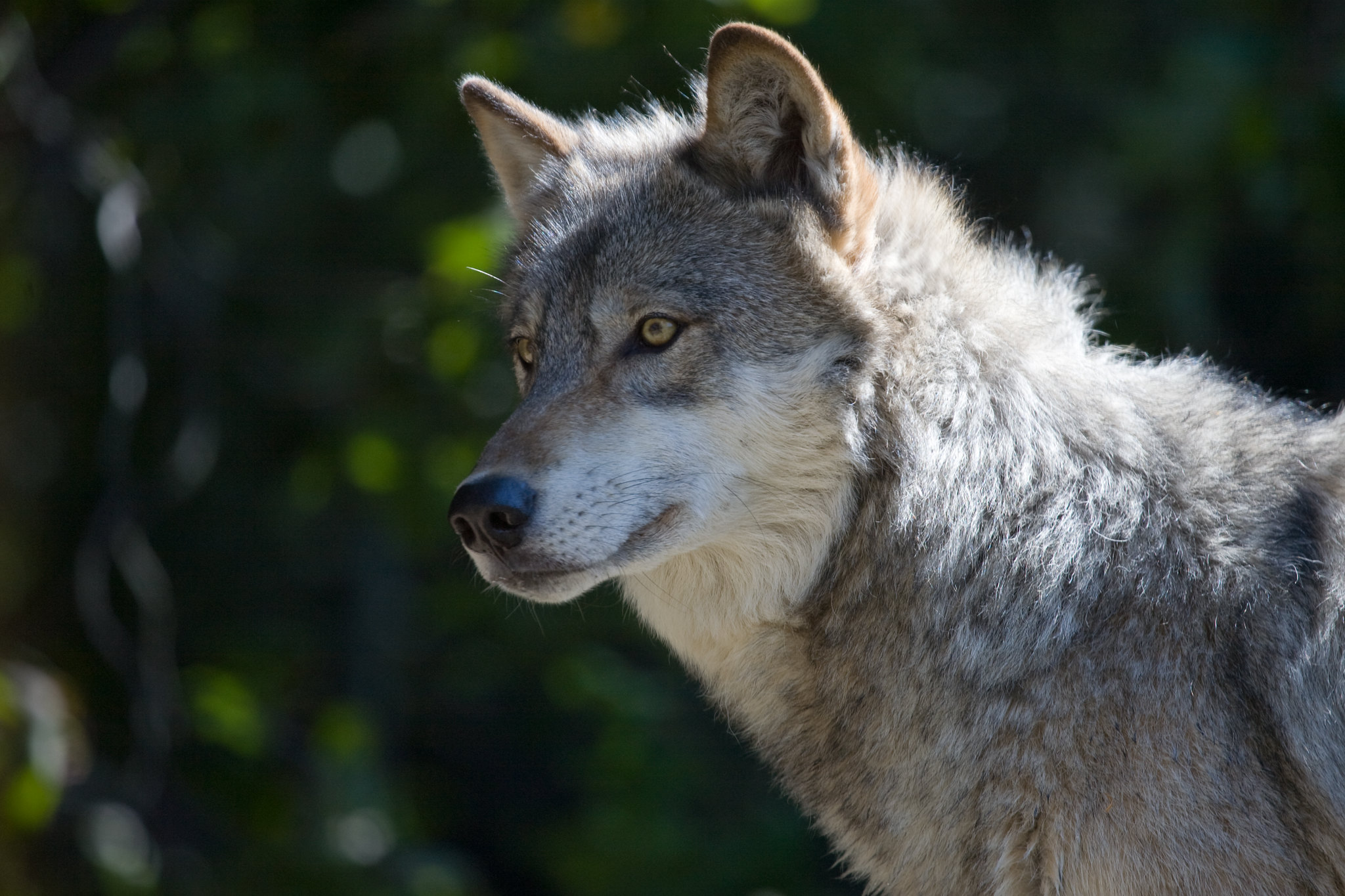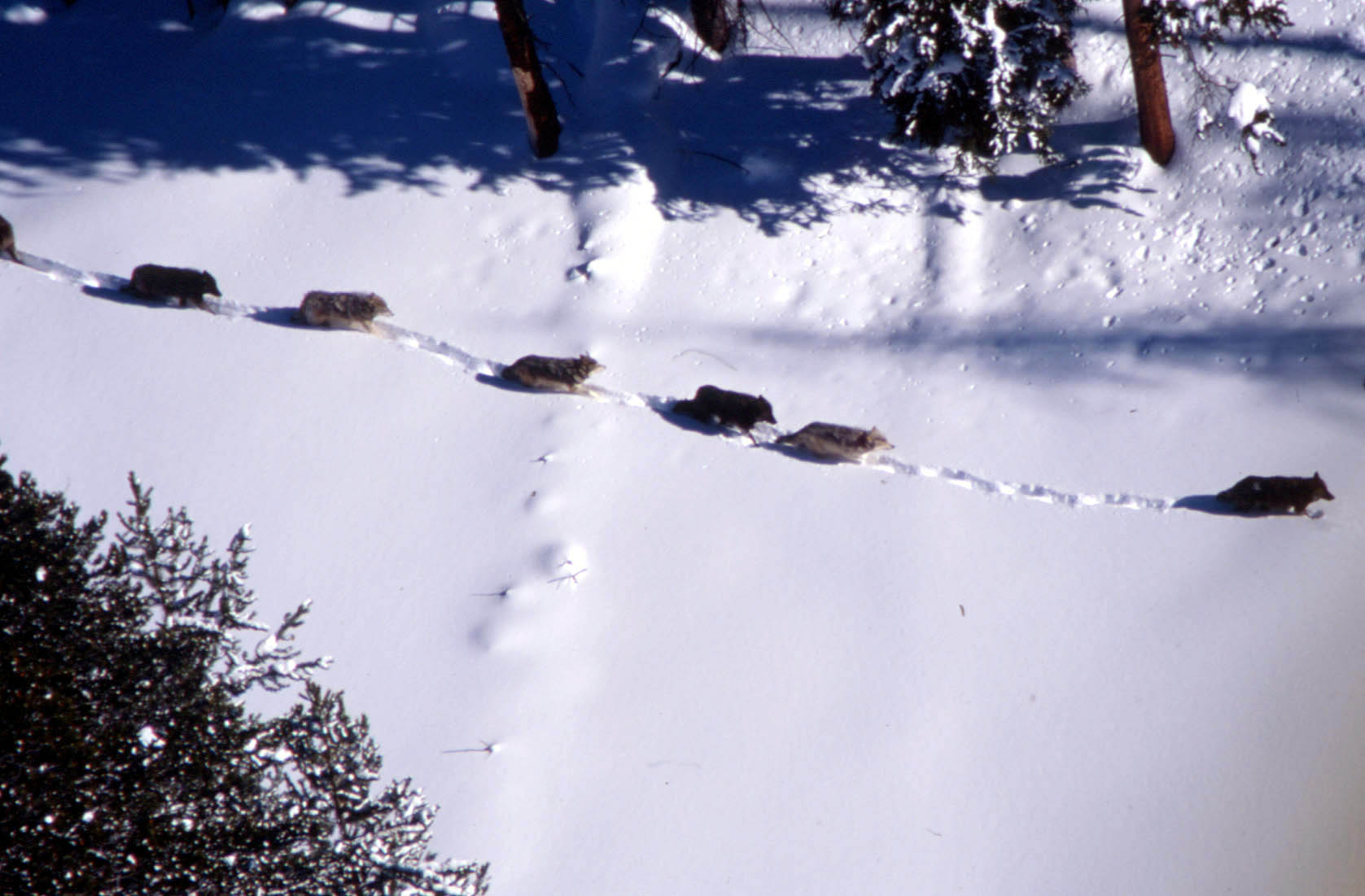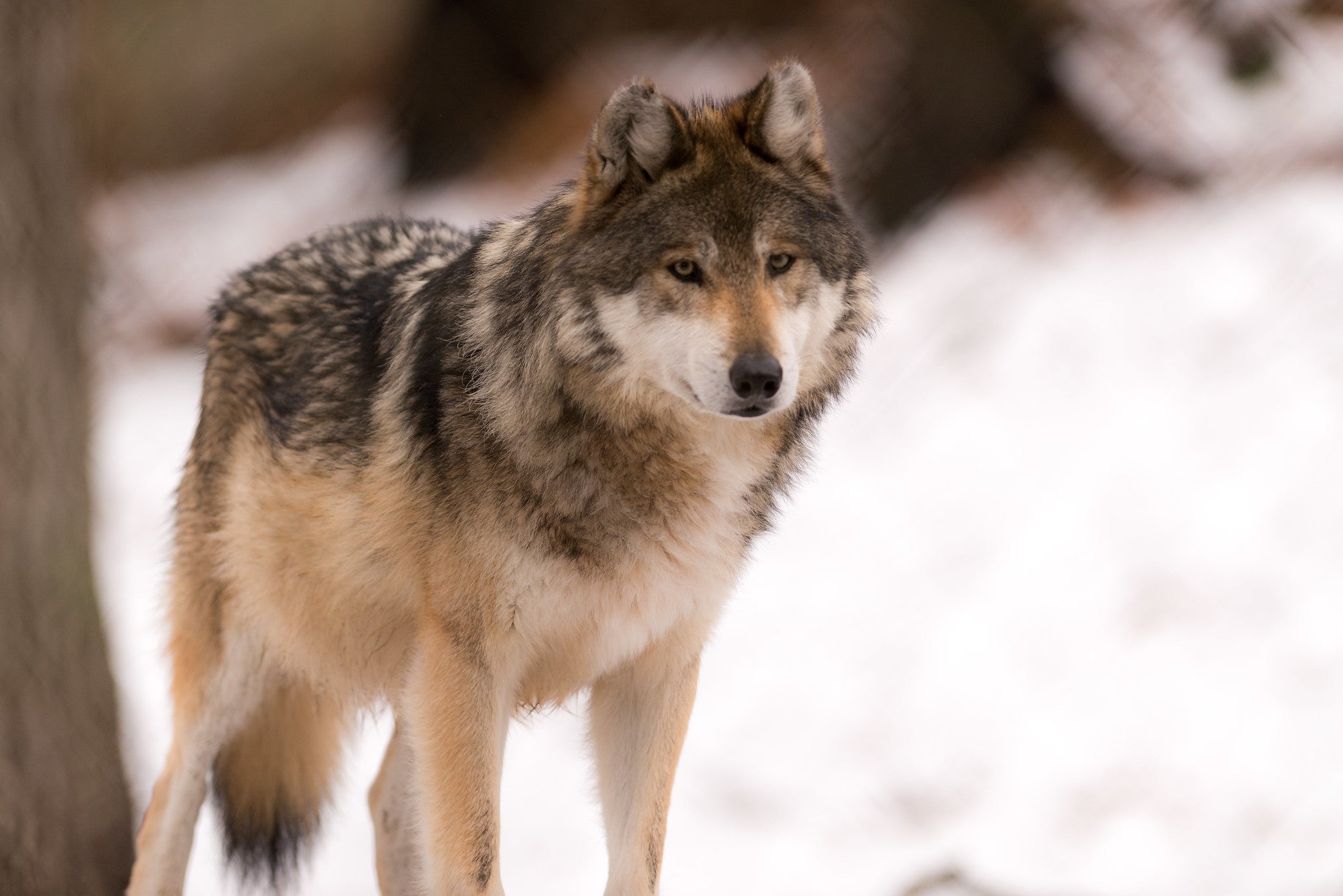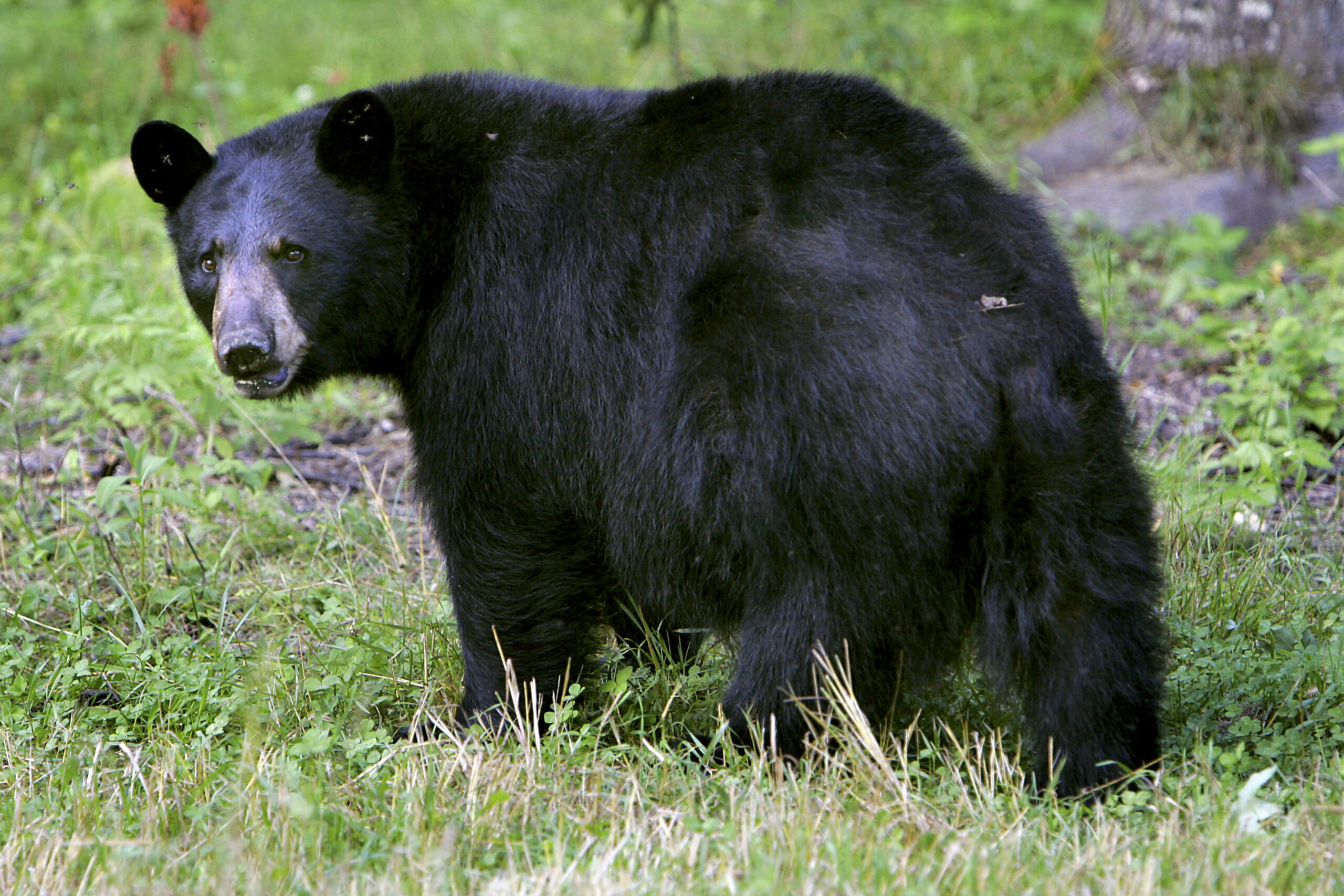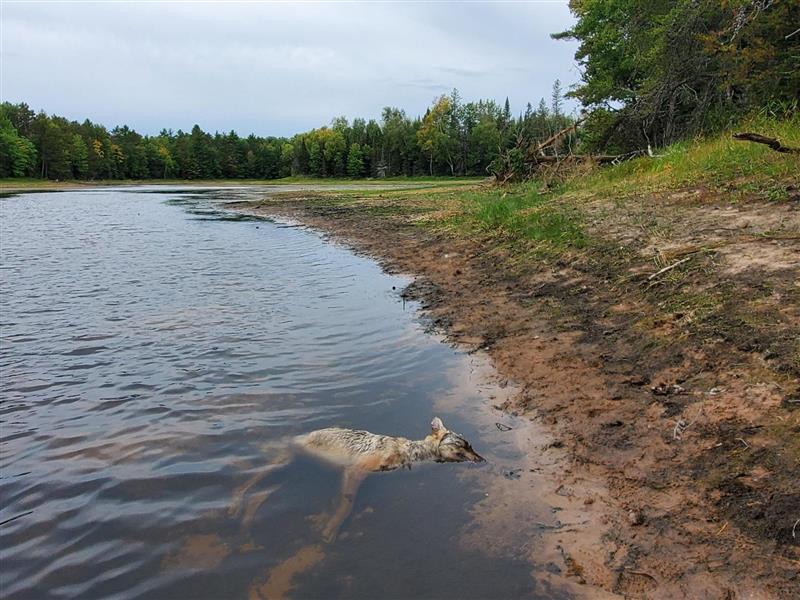Some hunters raised concerns in a preliminary hearing Monday over possible changes to wolf harvest regulations in Wisconsin, but an animal rights group says the revisions wouldn’t go far enough. The Wisconsin Department of Natural Resources is proposing to end night hunting of wolves, shorten the registration window after harvest and issue zone-specific tags.
The proposed changes aim to create consistency with night hunting regulations since those hunting with hounds aren’t allowed to hunt wolves at night, according to Scott Karel, rules specialist for the DNR’s Bureau of Wildlife Management. He said shortening the registration window would also make the rules more consistent with other species like deer and turkey.
“Because wolves can be night hunted, that would potentially give people up to 41 hours to register a wolf,” said Karel. “I think we would like to see that cut out a little bit more.”
Stay informed on the latest news
Sign up for WPR’s email newsletter.
Mike Brust with the Wisconsin Bowhunters Association argued the proposed changes were nothing more than a knee-jerk reaction to the February wolf hunt, during which state-licensed hunters harvested 218 wolves in less than 72 hours.
“What you’re doing with this removing night hunting is removing another opportunity for hunters to harvest wolves, and one of the few hunting opportunities that is available,” said Brust.
The DNR has faced criticism over its handling of the state’s first wolf hunt in six years. The Natural Resources Board approved an overall quota of 200 wolves that was split between the state and Wisconsin’s Ojibwe tribes.
In February, state-licensed hunters blew past their quota of 119 wolves. Brust contended the DNR “played games” with its proposed quota since tribes declined to harvest the wolf, which they view as a relative. Tribes have blasted the agency over its failure to maintain the quota, adding the hunt was not based on science.
Corky Meyer, former president of the Wisconsin Wildlife Federation, also expressed fears that the proposed regulations may limit opportunities for hunters and trappers.
“I’m concerned that if you create a blanket rule for outlawing night hunting of wolves, you’re also going to curtail other legal hunting,” said Meyer.
Laurie Groskopf, a hunter and resident of Lincoln County, said the regulations would do nothing to address the growing wolf population. She called the possible changes a “meaningless measure to placate wolf expansionists” in the state.
“The problem is there’s a lot of wolves, and there’s not enough quota to address that situation,” said Groskopf.
The number of wolves in Wisconsin grew from just 25 animals in 1980 to 1,195 wolves prior to the February wolf hunt, according to the DNR. As the wolf population has grown, farmers and hunters have reported increasing run-ins with the apex predator.
Animal rights activists argue remedies are needed to prevent what they view as the most egregious practices that took place during the February wolf hunt, including Megan Nicholson, Wisconsin state director of the Humane Society of the United States.
The organization supports the agency’s proposed changes. Nicholson further recommended the agency limit the number of hunters that can hunt in groups and create buffer zones around territories ceded by tribes to the government under federal treaties.
“It’s really critical that these changes be put in place prior to the start of the November 2021 season, and they’re incorporated into any emergency or permanent rules,” said Nicholson.
The DNR’s proposed changes will go before the Natural Resources Board for approval at its June 23 meeting. If approved, the agency can begin drafting the regulations. The agency is aiming to bring an emergency rule before the board in September that would bar night hunting and shorten the registration window for this fall’s wolf hunt in November. The DNR hopes to have permanent rules in place as early as next spring.
The Trump administration removed gray wolves from the endangered species list across most of the country in January, prompting lawsuits from environmental and wildlife groups to restore the protections. The Biden administration is reviewing that and other decisions.
Wisconsin law requires a wolf hunt when the animal isn’t under federal protection. The DNR first proposed holding a wolf hunt this fall to allow more time for tribal consultation, public input and updating its outdated wolf management plan. That plan, first released in 1999, hasn’t been updated since 2007. The agency has been gathering input on updating the state’s outdated wolf management plan and a harvest quota for this fall’s wolf hunt.
In February, Kansas-based Hunter Nation sued the DNR to force a season. A Jefferson County judge ordered a hunt to be held that month. The DNR appealed the ruling, but an appeals panel dismissed the case.
Wisconsin Public Radio, © Copyright 2025, Board of Regents of the University of Wisconsin System and Wisconsin Educational Communications Board.
